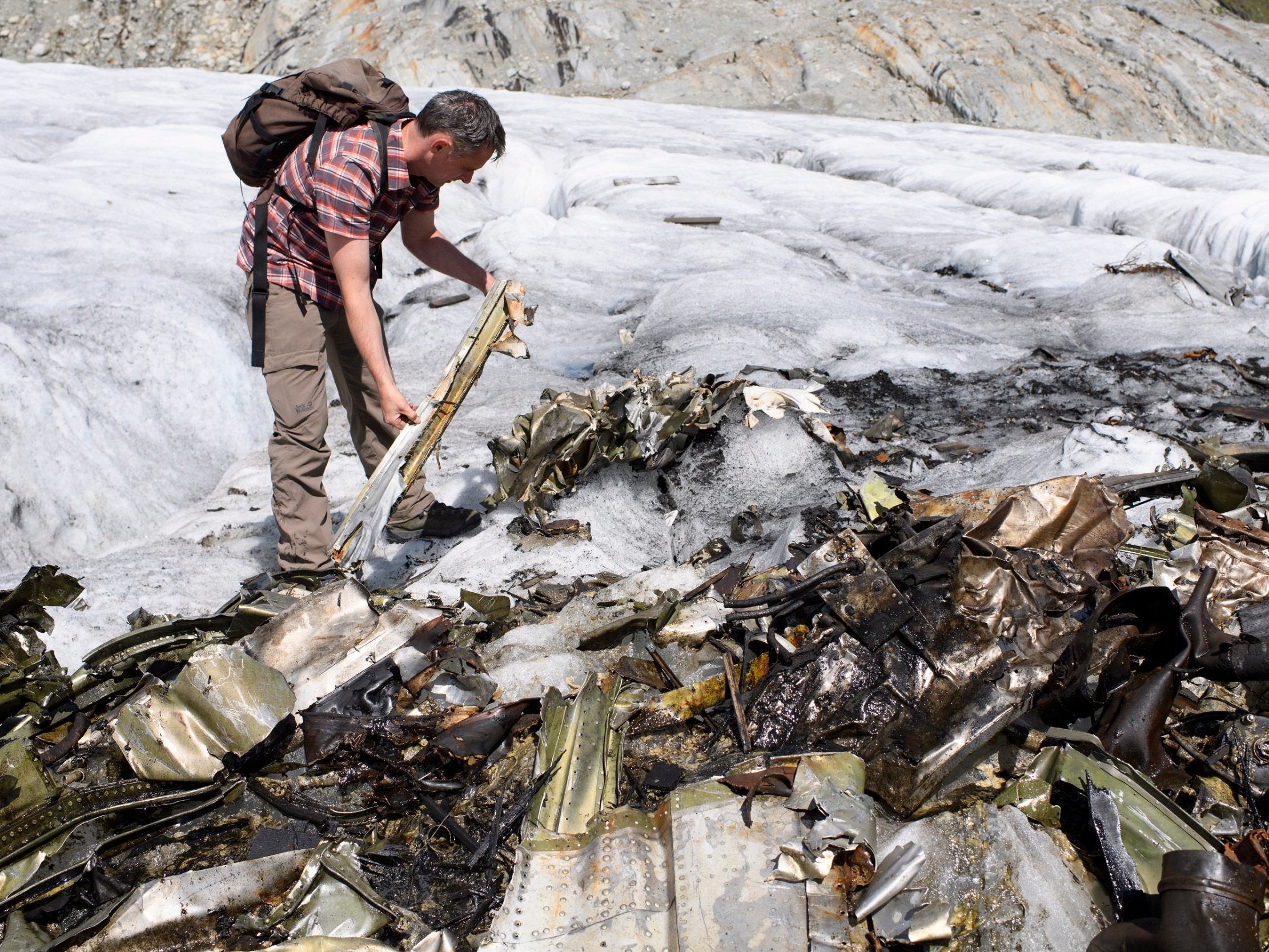Heatwave uncovers Second World War plane hidden in glacier for 72 years
US military transport aircraft crash landed in Alps in 1946

A heatwave in Switzerland has uncovered a Second World War plane that was frozen inside a glacier for the past 72 years.
The US military transport aircraft was flying from Austria to Italy in the winter of 1946 when a snowstorm forced it to crash land onto the Gauli Glacier in the Bernese Alps.
All 12 people onboard were rescued five days later by Swiss soldiers alerted to the accident by a radio message. The C-53 Skytrooper, also known as a Dakota, was never recovered, eventually being buried by decades worth of layers of snow and ice.
But experts have for the first time been able to recover much of the plane following unusually warm weather in the alpine country.
Temperatures have soared above 35C in recent weeks, matching much of Europe’s unprecedented summer heatwave. It is one of Switzerland’s hottest and driest summers since records began in 1864.
Among the items discovered inside the plane were tin cans, hangers and spoons.
An owner of a local mountain hut who was asked to watch over the site to prevent looting described the wreck as a “great folktale”.
“We have many visitors coming to us solely for the sake of the Dakota,” he told The Telegraph.
Historic sites across UK exposed by heatwave
Show all 15Scientists warn the dramatic melting of the world’s mountain glaciers is mostly the result of manmade climate change, rather than natural variabilities in the earth’s temperature.
A 2014 assessment of about 200,000 glaciers, some of which have been monitored since the mid-19th century, found about two-thirds of the current rate of glacial melting is due to human influences on the climate.
Subscribe to Independent Premium to bookmark this article
Want to bookmark your favourite articles and stories to read or reference later? Start your Independent Premium subscription today.

Join our commenting forum
Join thought-provoking conversations, follow other Independent readers and see their replies